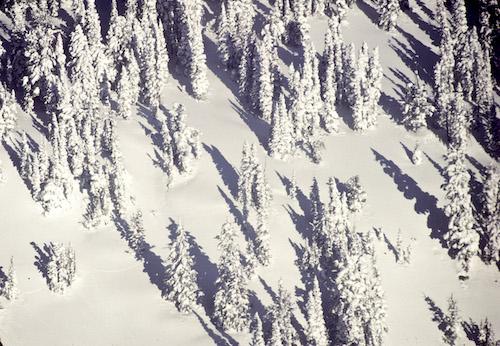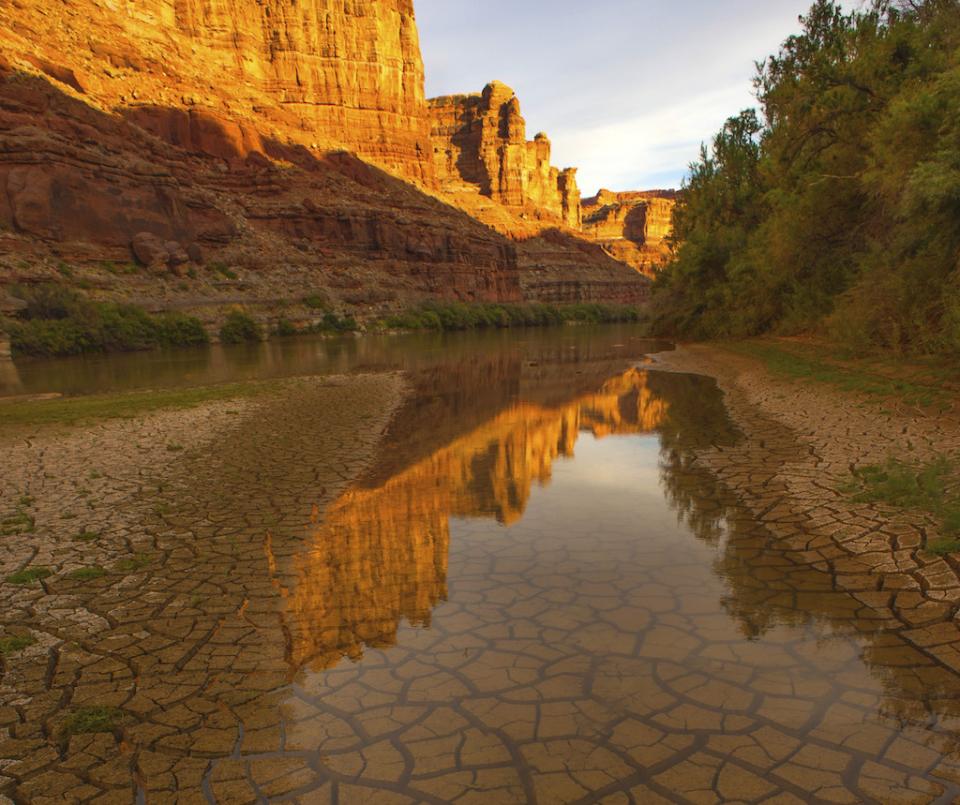
Water Desk Grantee Publication
This story was supported by the Water Desk’s grants program.
By mid-century, annual runoff into the Colorado River could be reduced by nearly a third as declining snowpack leads to greater evaporation of snowmelt, according to a new U.S. Geological Survey study.
That’s because as snowpack in the 100,000-square-mile river basin shrinks, it increasingly loses the ability to reflect solar radiation back into space, said Christopher Milly.
“We estimated that the warming effect alone (ignoring changes in precipitation) would, by the year 2050, reduce the flow by something in the range 14-31 percent, relative to historical 1913-2017 flows,” said Milly, who works in USGS’s Integrated Modeling and Prediction Division. “The loss would tend toward the higher end of this range for higher levels of greenhouse gases and toward the lower end for lower levels.”
Series: as goes the Colorado River, so go the national parks
National Parks Traveler Special Report supported by The Water Desk

Climate Change At Glen Canyon NRA
Not enough water and too many invasives at Glen Canyon National Recreation Area
Sidebar: Climate change reducing Colorado River runoff
Sidebar: Colorado River Econ 101
The National Park Service is doing what it can but control is out of their hands. Rob Billerbeck is the NPS Colorado River Coordinator, and says their job is to “prevent unacceptable impacts to natural and cultural resources, and maintain natural processes. It’s really tough to answer questions of ecosystem health, and the condition of the park resources.”
But it now seems certain that there will be major deficits in Colorado River flows in the future, with unintended consequences to downstream users, hydroelectric power, recreation, fish, wildlife, water quality, flood control and all water-dependent ecological systems along the entire river. It all depends on whether the weather and the climate continue to change as predicted. And that’s a problem for everyone.
This series on the health of the Colorado River and its impacts on Canyonlands and Glen Canyon has been supported by a grant from The Water Desk, an independent journalism initiative based at the University of Colorado Boulder’s Center for Environmental Journalism.
National Parks Traveler, a 501(c)(3) nonprofit media organization, depends on reader and listener support to produce stories such as this one and other coverage of national parks and protected areas. Please donate today to ensure this coverage continues.
Longform Story CSS Block


